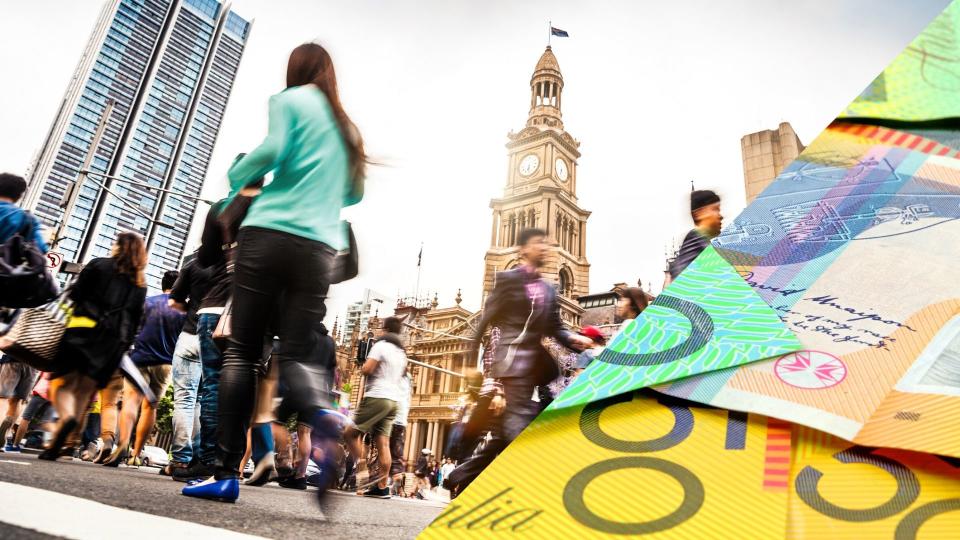No pay rises for ‘scared’ Aussie workers in 2020

Australian workers face a year without pay rises as the “dual demons” of drought and challenging housing market conditions combine with crumbling consumer confidence to hold spenders and the economy back.
Related story: What would a global recession in 2020 look like?
Related story: The Australian and global investment outlook for 2020: What to expect
Related story: Five tips on getting a pay rise
According to a Deloitte Access Economics’ Business Outlook for 2020, drought, a housing construction downturn and poor consumer confidence will suppress wage and employment growth in 2020.
“Australia has been battling the dual demons of drought and housing-related negatives, including cautious consumers and a downturn in housing construction,” Business Outlook lead author Chris Richardson said.
“But now there’s a third threat: cratered confidence among consumers and business.”
He said confidence in the economy is worse than the economy itself, noting that the bushfires have also dented confidence.
The jewel of the government’s economic policy was Prime Minister Scott Morrison and Treasurer Josh Frydenberg’s promised budget surplus. However, the government has been forced to fork out more than $2 billion for bushfire relief, reducing the size of that surplus.
Additionally, economists have warned the fires could see tourism take a hit of between $1.3 billion and $4.5 billion.
“The nation’s growth won’t lift all that much from today’s decade low, and we don’t expect unemployment to drop or wages to accelerate through 2020: we’ll be comfortably treading water rather than roaring into recovery,” Richardson said.
Is this another ‘recession we had to have’?

Australia’s retail sector is also struggling through its “deepest downturn” since 1990, Deloitte’s Richardson said.
Then-Prime Minister Paul Keating described the 1990 recession as the “recession we had to have” as Australia battled high unemployment, business collapses and high interest rates.
In the three weeks of 2020 so far, 161 Australian bricks and mortar stores have been marked for closure amid challenging conditions.
Some brand failures, like Jeanswest, leave hundreds of workers’ jobs in limbo.
And according to retail expert and CEO of consultancy Retail Doctor Brian Walker, another one-in-four Australian brands will either collapse or be absorbed within five years.
A look back at 2019: ‘Retail apocalypse’: number of failed Aussie retailers continue to climb as the sector claims another victim
December 2019: 1,800 Aussie jobs at risk as Harris Scarfe folds
August 2019: Target set to shut stores as sales fall
Walker said Australia is facing its “perfect storm” of economic caution and low wage growth, and it means retail is set for a “massive adjustment”.
“It’s not the end of physical retail, but it’s the death knell for mid-market shop-on-every-corner, vanilla retail,” he said.
Shadow Treasurer Jim Chalmers hit out at the government over its economic policies, noting Deloitte’s forecasted below trend growth of 2 per cent in 2019-20 and 2.4 per cent in 2020-21.
“The economy was already floundering under Scott Morrison and Josh Frydenberg before the fires hit, and now this new report says things won’t get much better this year for Australian workers and families,” Chalmers said.
The shadow treasurer has also called on the government to scale back its surplus plans and instead use that cash to stimulate the economy.
The Reserve Bank of Australia will meet on Tuesday 4 February to deliver its interest rate verdict.
Make your money work with Yahoo Finance’s daily newsletter. Sign up here and stay on top of the latest money, property and tech news.

 Yahoo Finance
Yahoo Finance 
